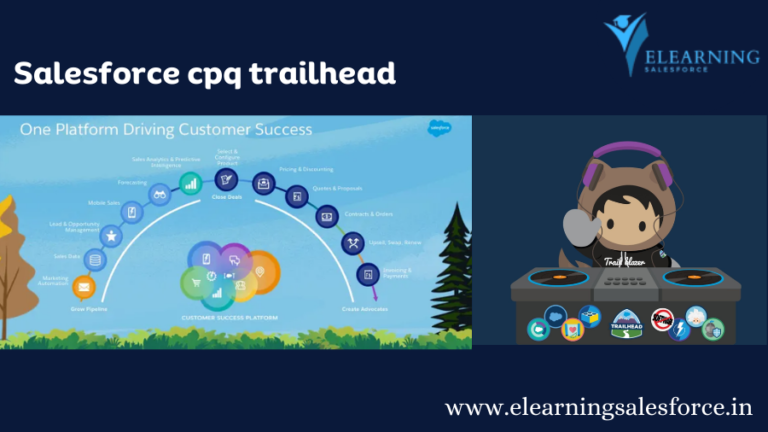In the realm of customer relationship management (CRM) software, Salesforce has emerged as a market leader, gaining significant popularity among businesses of all sizes and industries. With its comprehensive suite of cloud-based CRM solutions, Salesforce has revolutionized the way organizations manage customer data, streamline sales processes, and drive business growth. In this blog post, we will explore the key reasons behind Salesforce’s growing popularity and the benefits it offers to businesses.
I. Cloud-Based Accessibility and Scalability (Salesforce’s growing popularity):
One of the primary reasons for Salesforce’s popularity is its cloud-based nature. By leveraging cloud technology, Salesforce provides businesses with the flexibility and accessibility to access their CRM data from anywhere, at any time, through any device. This eliminates the need for on-premises infrastructure and allows for easy scalability, accommodating businesses of all sizes.
II. Comprehensive CRM Capabilities:
Salesforce offers a comprehensive set of CRM capabilities that cover various aspects of customer management. From lead generation and opportunity management to customer service and support, Salesforce provides a unified platform to handle all customer interactions. This comprehensive approach enables businesses to have a holistic view of their customers and deliver personalized experiences throughout the customer journey.
III. Customization and Flexibility:
Salesforce’s robust platform allows for extensive customization to tailor the CRM solution to meet specific business requirements. With its point-and-click interface and powerful development tools like Apex and Visualforce, businesses can build custom workflows, automate processes, and create personalized dashboards and reports. This flexibility empowers organizations to adapt Salesforce to their unique needs and workflows.
IV. Integration Capabilities:
Salesforce’s integration capabilities are another factor contributing to its popularity. It seamlessly integrates with a wide range of applications, including marketing automation tools, ERP systems, social media platforms, and customer service solutions. This integration enables businesses to centralize their data, eliminate data silos, and gain a comprehensive view of their operations. The ability to integrate with other systems enhances productivity, collaboration, and data accuracy.
Salesforce’s integration of artificial intelligence (AI) and machine learning (ML) technologies has further enhanced its popularity. Features like Einstein Analytics and Einstein AI provide intelligent insights and recommendations to sales teams, helping them identify potential opportunities, prioritize leads, and forecast sales. These AI-powered capabilities drive efficiency, enable data-driven decision-making, and empower sales teams to focus on high-value activities.
VI. Community and Ecosystem:
Salesforce boasts a vibrant and thriving community of users, administrators, developers, and partners. The Salesforce Trailblazer Community provides a platform for users to connect, share best practices, and seek guidance. Additionally, Salesforce’s AppExchange offers a vast marketplace of pre-built applications and integrations, allowing businesses to extend Salesforce’s capabilities and address specific needs. The strong ecosystem fosters innovation, collaboration, and continuous learning.
VII. Strong Data Security and Compliance:
Data security and compliance are critical considerations for businesses, particularly when managing customer information. Salesforce is renowned for its robust security measures and adherence to industry standards and regulations. With features like role-based access control, encryption, and regular security updates, Salesforce ensures data confidentiality and protection. It enables businesses to maintain compliance with regulations such as GDPR and CCPA, instilling trust and confidence in customers.
Is Salesforce having good future?
Salesforce continues to be a leading player in the customer relationship management (CRM) space and has shown a strong and promising future. Several factors contribute to Salesforce’s positive outlook:
- Market Leadership: Salesforce is one of the largest and most established CRM providers in the world, with a significant market share and a broad customer base across various industries.
- Continuous Innovation: Salesforce consistently introduces new features, enhancements, and updates to its platform to address evolving business needs and technological trends. This commitment to innovation helps the company stay competitive and relevant.
- Cloud Computing Demand: The overall demand for cloud-based solutions, including CRM systems, has been steadily growing. Salesforce’s cloud-based model aligns well with the increasing preference for flexible and scalable software solutions.
- Diversified Offerings: In addition to its core CRM offerings, Salesforce has expanded its product portfolio to include a wide range of tools and services, such as analytics, artificial intelligence, marketing automation, and more. This diversification enhances its value proposition to customers.
- Strategic Acquisitions: Salesforce has a history of making strategic acquisitions to strengthen its capabilities and expand into new markets. These acquisitions have positioned the company for further growth and innovation.
- Global Reach: Salesforce operates on a global scale, serving businesses of all sizes and industries around the world. This international presence contributes to its growth potential.
- Digital Transformation: Many businesses are undergoing digital transformation initiatives, and CRM systems like Salesforce play a central role in helping organizations improve customer engagement, streamline operations, and drive business growth.
- Evolving Customer Expectations: As customer expectations continue to evolve, the need for effective CRM solutions that provide personalized experiences, data insights, and seamless interactions remains crucial.
Conclusion:
Salesforce’s popularity stems from its ability to provide businesses with a comprehensive, flexible, and scalable CRM solution. Its cloud-based accessibility, customization capabilities, and integration options make it a preferred choice for organizations across industries. By harnessing AI-powered insights and leveraging the strong community and ecosystem, businesses can unlock new levels of productivity and customer satisfaction. With its commitment to data security and compliance, Salesforce instills trust and empowers businesses to build strong and lasting customer relationships. As Salesforce popularity continues to innovate and evolve, its Salesforce popularity is expected to grow, shaping the future of CRM software.




